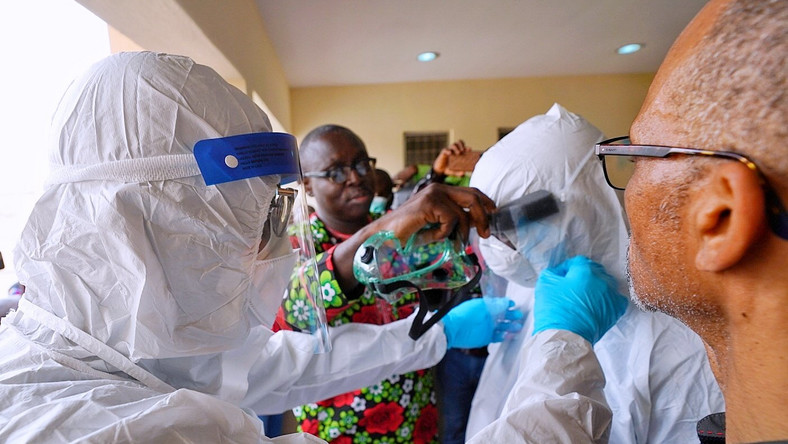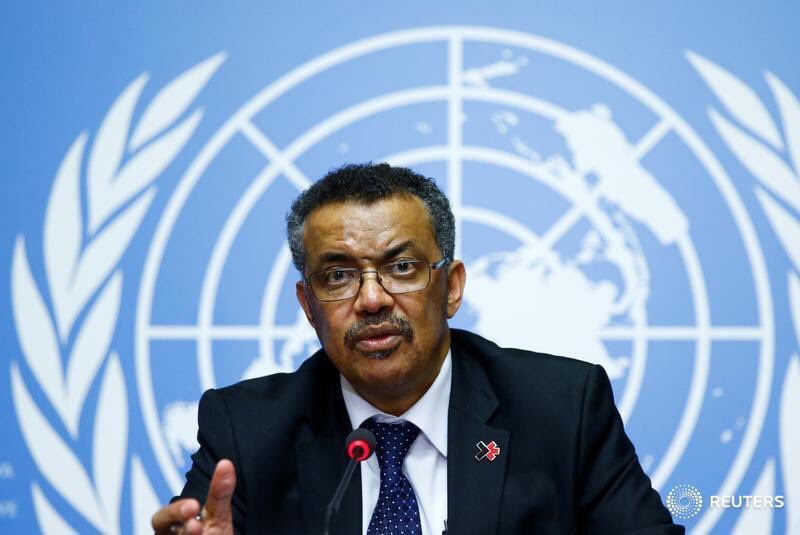The World Health Organisation, WHO, Regional Office for Africa in Brazzaville, Congo, said the number of coronavirus cases in Africa has increased to over 11,900.
The United Nations’ health agency gave the update on its official twitter account @WHOAFRO on Friday, April 10, 2020.
#COVID19 cases in Africa rise to over 11,900 – with 1,586 recoveries & 608 deaths reported. View country figures & more with the WHO African Region COVID-19 Dashboard: https://t.co/V0fkK8dYTg pic.twitter.com/tx74tK1U2T
— WHO African Region (@WHOAFRO) April 10, 2020
“COVID19 cases in Africa rise to over 11,900 – with 1,586 recoveries and 608 deaths reported,’’ it said.
The breakdown in the WHO African Region COVID-19 dashboard showed that South Africa, Algeria, and Cameroon had continued to top the list of countries with the highest reported cases.
South Africa has 1,934 cases and 18 deaths followed by Algeria with 1,666 cases and 235 deaths, while Cameroon has 730 confirmed cases with 10 deaths.
It also showed that the countries with the lowest confirmed cases are South Sudan and Burundi, which had reported three cases each with zero death.
The second-lowest confirmed cases of COVID-19 countries in Africa are the Gambia and Sao Tome, which have confirmed four cases each while the latter has zero death, the former (Gambia) has recorded one death.
Mauritania is in the third category with the lowest cases as the country has recorded six confirmed cases with no death.

Also, the dashboard showed that COVID-19 cases had risen to 288 in the past two days from 254 confirmed cases with seven deaths in Nigeria.
However, WHO regional director for Africa, Matshidiso Moeti, said COVID-19 had the potential not only to cause thousands of deaths but to also unleash economic and social devastation.
In a statement posted on the agency’s website, the regional director said the virus had continued to spread on the continent.
“Its spread beyond major cities means the opening of a new front in our fight against this virus. “This requires a decentralized response, which is tailored to the local context.
“Communities need to be empowered and provincial and district levels of government need to ensure they have the resources and expertise to respond to outbreaks locally,” Moeti said.
WHO said it has been working with governments across Africa to scale up their capacities in critical response areas.
It listed the areas of responsibility as coordination, surveillance, testing, isolation, case management, contact tracing, infection prevention and control, risk communication and community engagement, and laboratory capacity.
It said Ghana, Kenya, Ethiopia, Egypt, Morocco, Tunisia, and Nigeria had expanded national testing to multiple laboratories, allowing for decentralized testing.
“These combined measures will ensure the rapid identification of cases, the tracking down and quarantining of contacts and the isolation and treatment of patients,” the agency added.







